Elon Musk is still trying to buy Twitter – will he succeed and should you care?
Elon Musk has unveiled a $46.5bn financing package to fund his mooted buyout of Twitter. But why is he so keen to buy, and what does he really want with it?

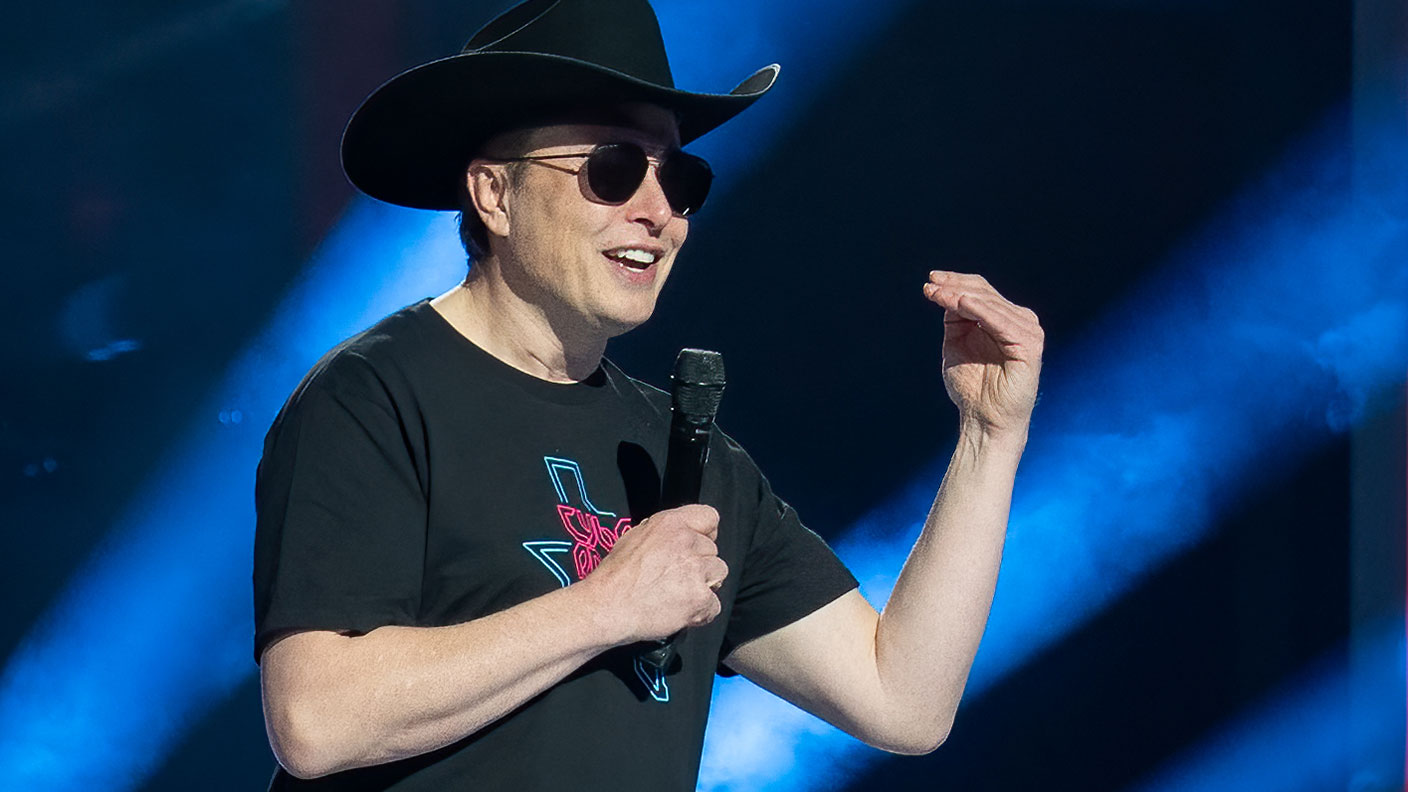
Get the latest financial news, insights and expert analysis from our award-winning MoneyWeek team, to help you understand what really matters when it comes to your finances.
You are now subscribed
Your newsletter sign-up was successful
Want to add more newsletters?

Twice daily
MoneyWeek
Get the latest financial news, insights and expert analysis from our award-winning MoneyWeek team, to help you understand what really matters when it comes to your finances.

Four times a week
Look After My Bills
Sign up to our free money-saving newsletter, filled with the latest news and expert advice to help you find the best tips and deals for managing your bills. Start saving today!
It seems that Elon Musk is still serious about trying to take Twitter (NYSE: TWTR) private.
In the latest twist, the billionaire has unveiled a $46.5bn financing package to fund his buyout.
It’s not surprising he’s managed to find the money – the billionaire executive of Tesla (Nasdaq: TSLA) is currently the richest person in the world, according to the Bloomberg Billionaires Index, with a fortune of $260bn.
MoneyWeek
Subscribe to MoneyWeek today and get your first six magazine issues absolutely FREE

Sign up to Money Morning
Don't miss the latest investment and personal finances news, market analysis, plus money-saving tips with our free twice-daily newsletter
Don't miss the latest investment and personal finances news, market analysis, plus money-saving tips with our free twice-daily newsletter
Musk has lined up $25.5bn in debt financing, including a margin loan of $12.5bn against his stake in Tesla, from his major banking partners. He is also looking to provide $21bn of equity for the deal himself.
A bit of financial gymnastics will allow the billionaire to put up this figure without too much pain. The margin loan is secured against 85% of his 17% stake in Tesla, which is worth around $170bn at current prices.
That limits the amount of stock Musk can sell to fund the deal. However, under Tesla’s controversial 2018 bonus scheme, the CEO has three opportunities to buy more than eight million shares (each time) in the electric vehicle manufacturer at a 90% discount. With the next tranche of the bonus scheme set to kick in soon, this could provide the extra funding he needs for the equity slice.
Elon Musk needs to convince Twitter to sell
However, finding the money to finance the bid – which is an interesting challenge – was never really the biggest problem for Musk. Convincing the company to give itself up was always going to be a bigger headache.
And it doesn’t look as if Twitter is going to bend to Musk's wishes any time soon.
Last week it launched a so-called “poison pill” defence against the bid, aimed at blocking him from building a stake of more than 15%. The structure will allow existing investors to buy more shares at a heavy discount if Musk or anyone else attempts to buy more than 15% of the company without the board‘s backing.
Tesla’s CEO already owns 9.2% of Twitter and has said he is exploring a tender offer to buy a bigger stake in the company. Such a move is usually considered a hostile act because it bypasses the board of directors, who are ultimately supposed to represent shareholders. And now it would trigger the poison-pill defence, diluting his stake, and increasing the cost of a potential buyout.
Interestingly, Twitter has yet to issue a formal response to the initial buyout offer, so there could be yet another twist in this tale.
Is there something else going on behind the scenes?
The bigger question is what does Musk really want with Twitter? He has claimed that the company is a platform for free speech around the world and he wants to defend this right. However, the enterprise does not fit well alongside his collection of other businesses, namely Tesla and SpaceX, and the group is struggling for direction.
Twitter is trying to boost revenues by getting advertisers to pay more for their brands to appear on users' timelines, but it is still losing money. It reported a net loss of $221m in 2021 on revenues of more than $5bn.
Some of Musk’s critics have speculated that he could be pursuing Twitter in order to divert attention from as-yet-to-be-seen problems. If this is the case, it’s an expensive way to distract the media, but for a billionaire who has a history of playing fast and loose with the rules – and one whose own Twitter stream is essentially an ongoing publicity stunt – it would not be out of character.
It might be best for investors to sit this one out, rather than trying to guess what’s in store for either side of this increasingly bitter battle.
Get the latest financial news, insights and expert analysis from our award-winning MoneyWeek team, to help you understand what really matters when it comes to your finances.

Rupert is the former deputy digital editor of MoneyWeek. He's an active investor and has always been fascinated by the world of business and investing. His style has been heavily influenced by US investors Warren Buffett and Philip Carret. He is always looking for high-quality growth opportunities trading at a reasonable price, preferring cash generative businesses with strong balance sheets over blue-sky growth stocks.
Rupert has written for many UK and international publications including the Motley Fool, Gurufocus and ValueWalk, aimed at a range of readers; from the first timers to experienced high-net-worth individuals. Rupert has also founded and managed several businesses, including the New York-based hedge fund newsletter, Hidden Value Stocks. He has written over 20 ebooks and appeared as an expert commentator on the BBC World Service.
-
 Average UK house price reaches £300,000 for first time, Halifax says
Average UK house price reaches £300,000 for first time, Halifax saysWhile the average house price has topped £300k, regional disparities still remain, Halifax finds.
-
 Barings Emerging Europe trust bounces back from Russia woes
Barings Emerging Europe trust bounces back from Russia woesBarings Emerging Europe trust has added the Middle East and Africa to its mandate, delivering a strong recovery, says Max King
-
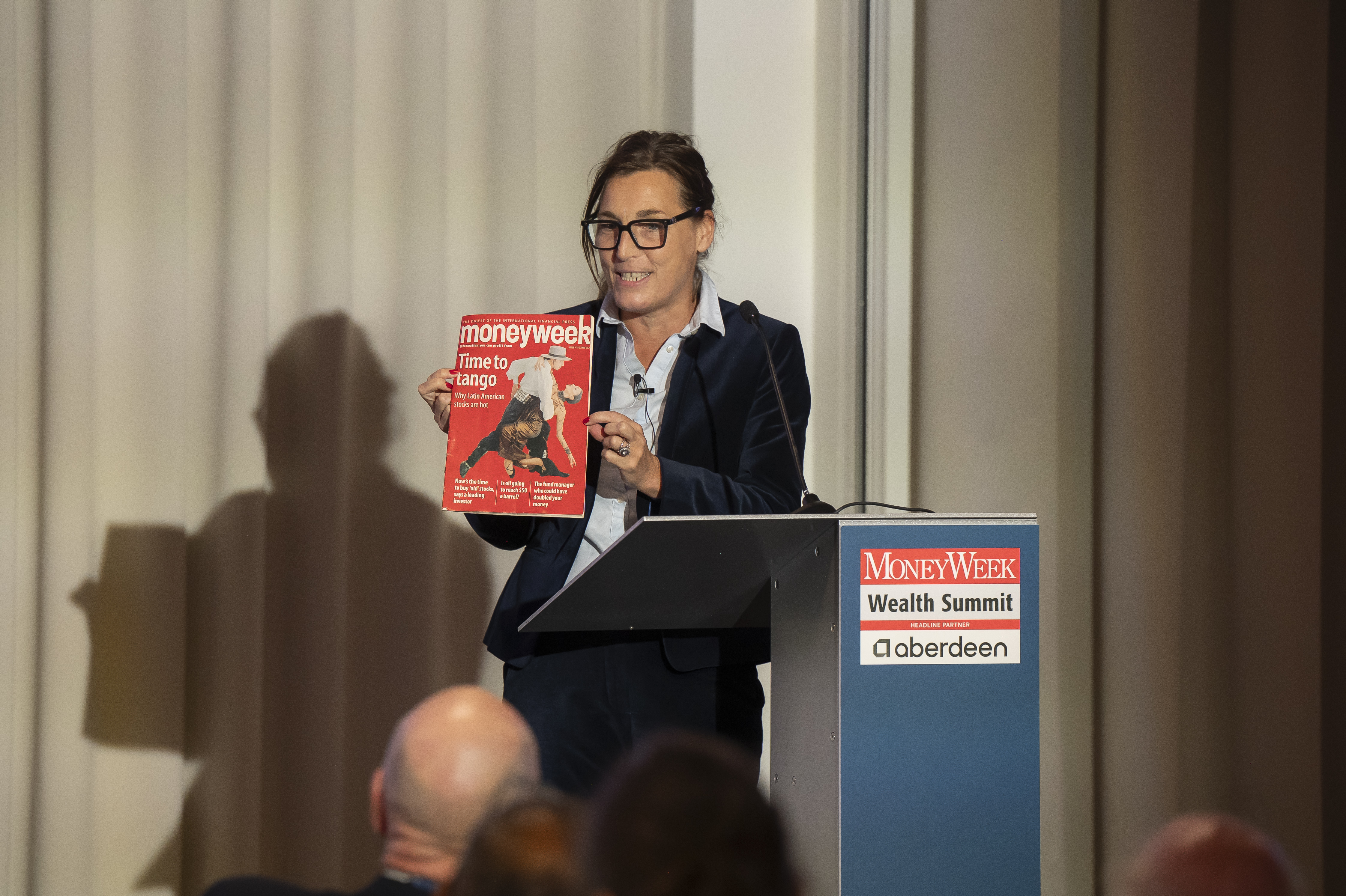 Key lessons from the MoneyWeek Wealth Summit 2025: focus on safety, value and growth
Key lessons from the MoneyWeek Wealth Summit 2025: focus on safety, value and growthOur annual MoneyWeek Wealth Summit featured a wide array of experts and ideas, and celebrated 25 years of MoneyWeek
-
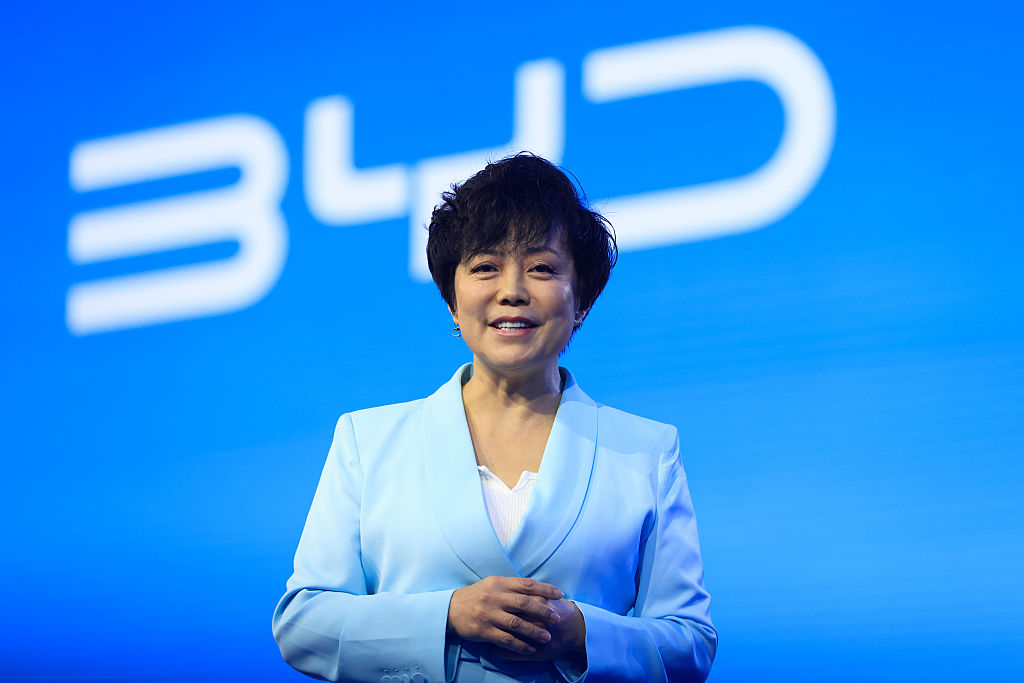 The Stella Show is still on the road – can Stella Li keep it that way?
The Stella Show is still on the road – can Stella Li keep it that way?Stella Li is the globe-trotting ambassador for Chinese electric-car company BYD, which has grown into a world leader. Can she keep the motor running?
-
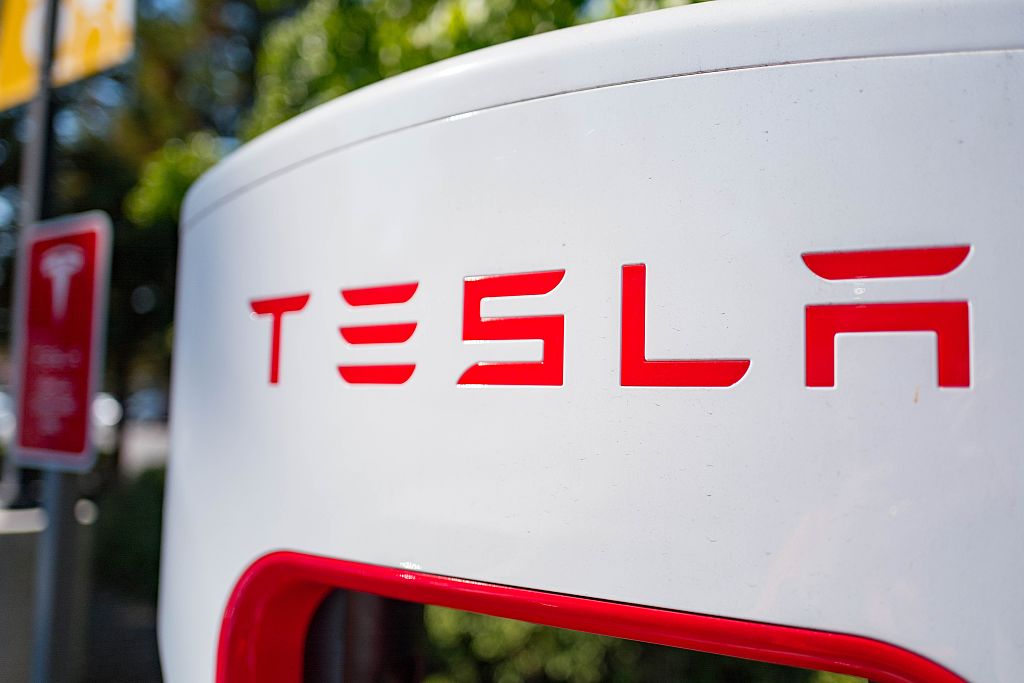 Tesla seeks approval to supply electricity to UK homes – could it disrupt the energy market?
Tesla seeks approval to supply electricity to UK homes – could it disrupt the energy market?Tesla has applied for a license to supply UK households with electricity, but taking on the biggest providers could prove challenging
-
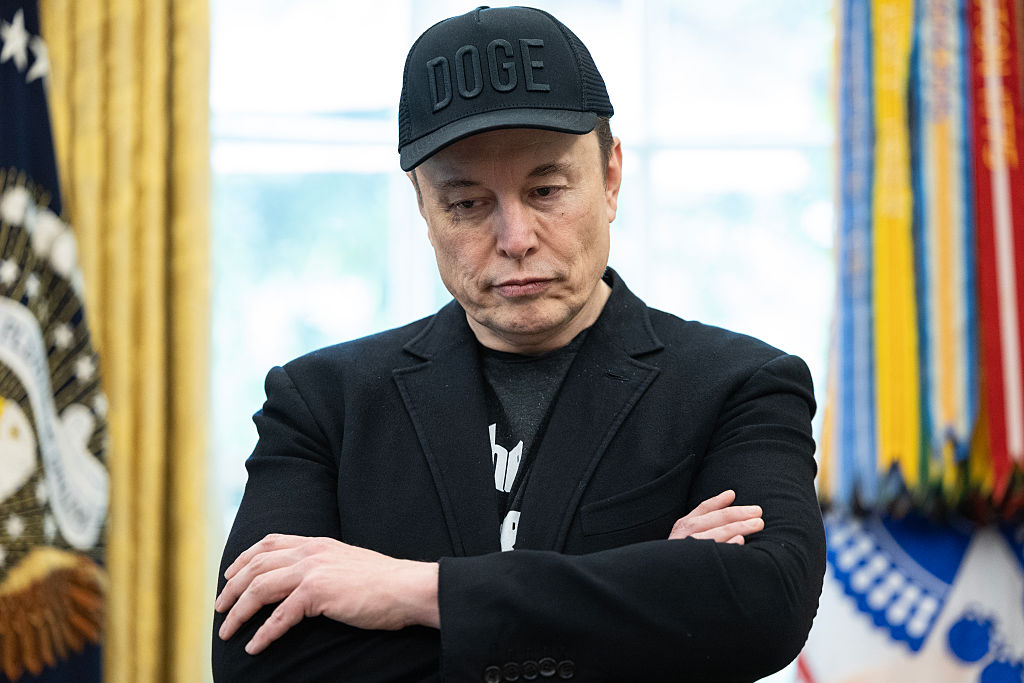 Tesla shares fall after-hours, while Alphabet's gain on earnings beat
Tesla shares fall after-hours, while Alphabet's gain on earnings beatAI positivity drove Alphabet's shares to new heights, but Musk's "rough quarters" warning saw Tesla's share price slump
-
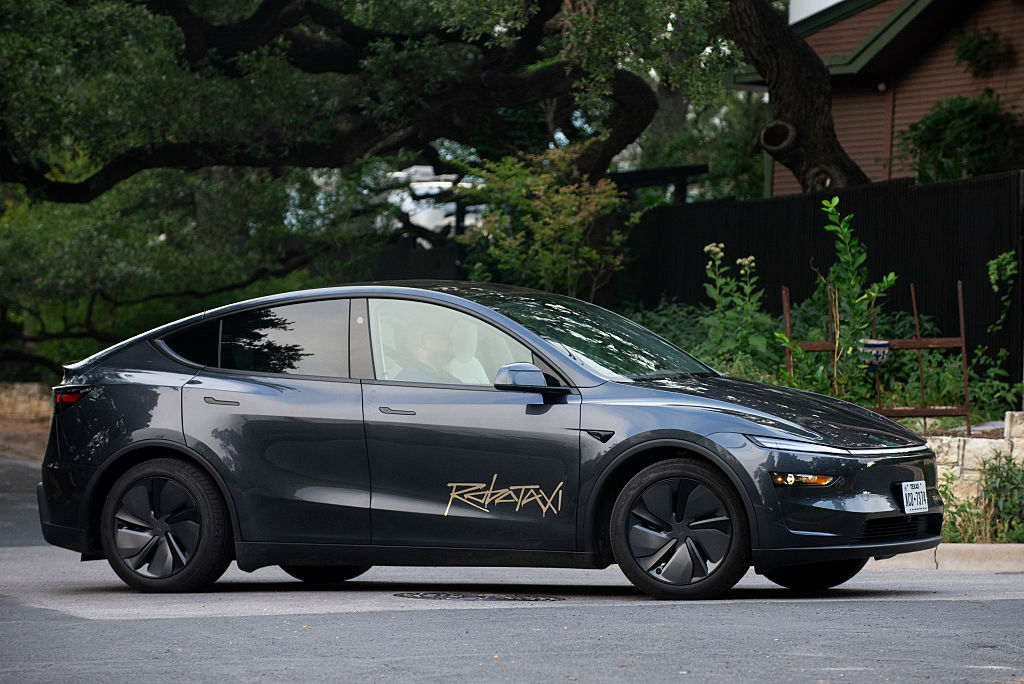 Tesla shares gain on robotaxi launch
Tesla shares gain on robotaxi launchSelf-driving promises have been propping up Tesla stock’s valuation for years, but the robotaxi revolution may have finally arrived
-
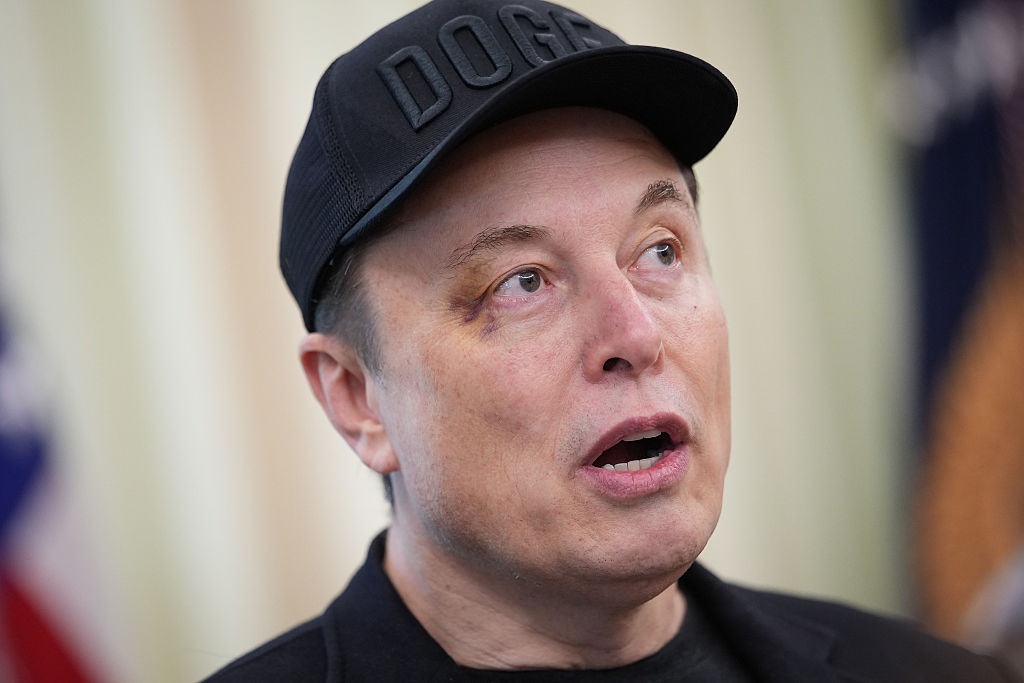 Tesla shares slump over Trump/Musk feud
Tesla shares slump over Trump/Musk feudA war of words has sent Tesla shares spiralling to the company’s largest single-day value decline in history
-
 Tesla is no longer the world’s largest electric car maker. Should you invest?
Tesla is no longer the world’s largest electric car maker. Should you invest?Investors need to weigh up the potential of Tesla’s autonomous technology drive against struggles in its core carmaking business when deciding whether or not to invest
-
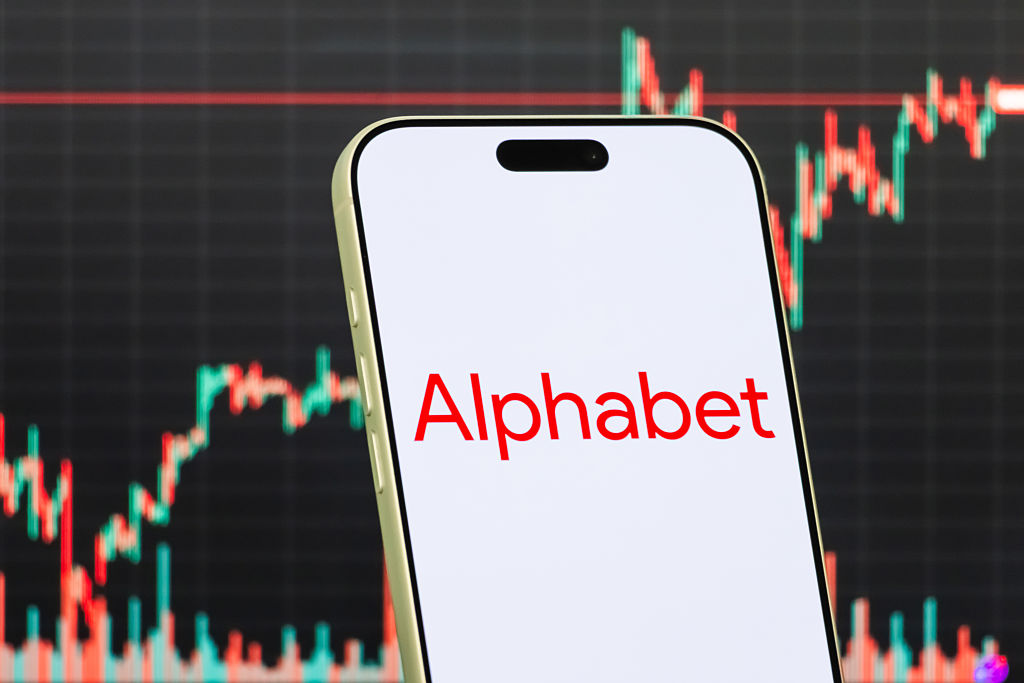 Magnificent Seven earnings: Alphabet stock falls on AI capex increase
Magnificent Seven earnings: Alphabet stock falls on AI capex increaseMagnificent Seven earnings season continues, with Alphabet’s earnings beat overshadowed by its spending guidance